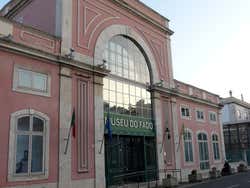
Fado Music
Fado is the musical expression of Lisbon and Portugal. The word “Fado” comes from “fatum” in Latin, which means destiny. The frustration and fatalism felt by the inhabitants of Lisbon’s humble fishing neighborhoods, ports, and taverns are reflected in this melancholic and nostalgic music.
Fado can be traced back to the first half of the eighteenth century, as a force from the city’s most humble districts that slowly but surely penetrated the whole of Lisbon. Its creation is very similar to Argentina’s renowned tango music. It has the same passion and the songs are often about women or the sea. But unlike tango, Fado doesn’t have dancers that sway to the music and is somewhat more introverted, secluded, intimate in essence, and “saudade” as the Portuguese say: a tough-to-translate term encompassing melancholia, longing, and nostalgia.
Fado remembers what is lost, Portugal’s lost empire, the country that could have been, the man that lost his glory. Fado’s lyrics look back on the country’s history and its scarred soul, which are sung so well by great poets like Pessoa or Camoens.
Fado Nowadays
After years of associating this music genre with Salazar’s dictatorship and as a tourist attraction, nowadays Fado is reawakening. It has found a space in the country’s hearts and its lyrics are written by the best poets.
Fado is largely attributed to the collective memory given by Amália Rodrígues (1920-1999), considered to be the country’s best singer.
You can listen to Fados in the Fado Clubs (Casas de Fado) and you’ll find authentic Fado in the Lisbon neighborhoods of Alfama, Mouraria, and Bairro Alto.
Fado Shows
Enjoying a Fado show in Lisbon is possible in every corner of the city, from dinners with ambiance to boat rides. Here at Civitatis, we've put together a great selection so you can attend the show that suits you best or that you would most enjoy:
- Fado in Chiado
- Dinner + Fado Show in Canto do Poeta
- Lisboa em Fado Show Ticket
- Lisbon Dinner + Fado Show
- River Cruise with Fado Show
- Mesa de Frades Fado Dinner Show

